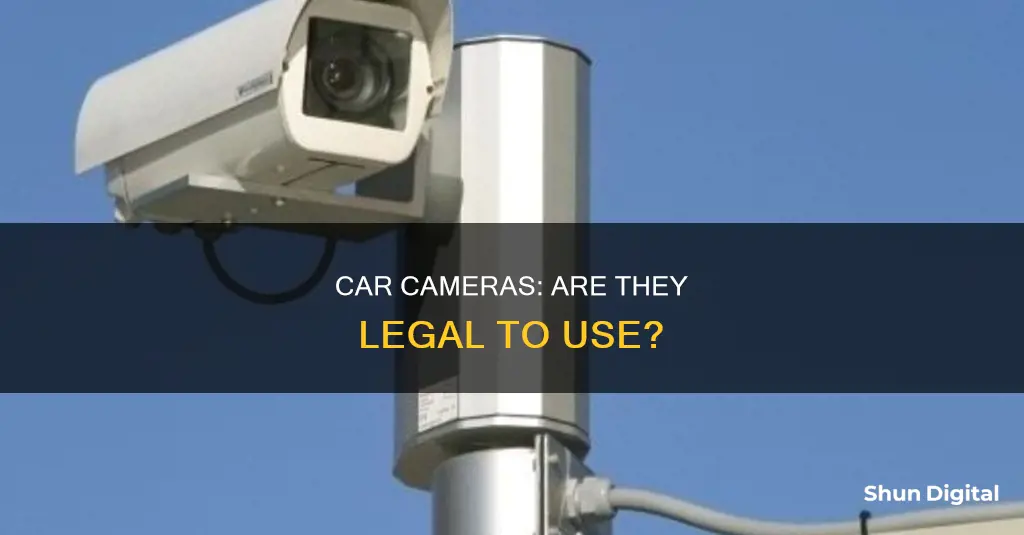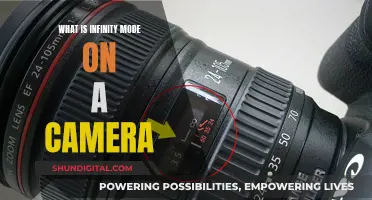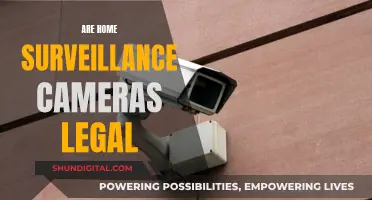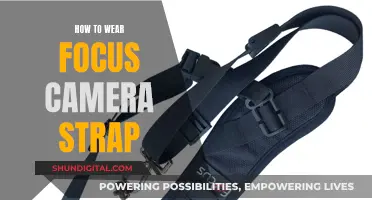
Dash cams are legal in the US, but there are some restrictions on their use. While there are no federal laws outlawing dash cams, some states have restrictions in place that could impact how and where you install your dash cam. For example, in Alabama, it is illegal to place anything on the windshield of a vehicle, making suction dash cams illegal to install. However, in most states, dash cams are permitted as long as they don't obstruct the driver's view. In addition, some states have laws regarding the privacy and electronic surveillance implications of dash cams, particularly those that record audio.
| Characteristics | Values |
|---|---|
| Legality of dash cams in the US | Legal in all 50 states |
| Legality of dash cams in other countries | Legal in Australia |
| Wiretapping laws | Vary from state to state |
| Privacy laws | Vary from state to state |
| Legality of dash cams in company vehicles | Legal in Pennsylvania for business use |
| Legality of dash cams at border crossings | Not allowed without permission from US Customs & Border Protection Officers |
| Legality of dash cams in Washington DC | Legal |
| Legality of dash cams in Virginia | Legal |
| Legality of suction cup mounts | Legal in Nevada, Kentucky, Maryland and New York |
| Legality of dash cams in police vehicles | Legal |
What You'll Learn

Legality of car cameras in the US
Car cameras, or dash cams, are not illegal in the US. There are no federal laws prohibiting their use, and dash cams are legal in all 50 states. However, there are some important restrictions and regulations that users should be aware of.
Placement and Installation
The placement of dash cams is regulated by state laws, and these vary across the US. While some states allow dash cams to be mounted on the windshield, others require them to be placed on the dashboard. Many states have restrictions on how much of the windshield can be obscured by devices, and this includes dash cams and GPS systems. Generally, if a dash cam takes up more than a 5-inch square on the driver's side or a 7-inch square on the passenger's side, it is considered an obstruction and may result in a fine or other legal consequences.
Some states, like Alabama, prohibit any objects from being placed on the windshield, making suction dash cams illegal. Other states, like Arkansas, allow dash cams to be mounted on the windshield but only behind the rearview mirror and as long as they do not obstruct the driver's view. California has similar regulations, defining specific areas where dash cams can be mounted on the windshield without obstructing the driver's view.
States like Connecticut, Delaware, and the District of Columbia prohibit placing non-transparent materials on the windshield, which includes dash cams. In these states, dash cams must be mounted on the dashboard.
Audio Recording
In addition to regulations regarding placement, some states have laws concerning audio recording. In some states, it is illegal to record a conversation in your vehicle without the knowledge and consent of all participants. For example, in Washington, D.C., drivers must have permission from all passengers to record audio in the car.
Benefits and Drawbacks
Dash cams can be beneficial in the event of an accident, as they provide an unbiased record of what happened. They can also capture episodes of police violence or other incidents. However, privacy is a significant concern, as dash cams can record people and conversations without their permission.
While dash cams are generally legal in the US, it is important for users to be aware of the specific laws and regulations in their state regarding placement, audio recording, and privacy.
The Quest for the Second-Ever Camera: Unveiling History
You may want to see also

Legality of obstructed views
The legality of obstructed views caused by car cameras varies across different states. While dash cams are not illegal, many states have restrictions in place that could impact how and where you install your dash cam.
Most car cameras are designed to attach to the windshield with a suction cup mounting system. However, many states place restrictions on how much of a windshield can be obscured by devices such as cameras and GPS systems. As a rule of thumb, if your dash camera obscures more than a 5-inch square on the driver's side or a 7-inch square on the passenger's side, you could be penalised. Some states have even tighter restrictions, while others don't have any windshield-obscuring restrictions.
In some states, the law does not specify dash cams, but it also doesn't exempt them from the rule. These include Connecticut, Delaware, Georgia, and Florida.
In other states, the law focuses on preventing the obstruction of the driver's view of the road, with some using vague language that could include any obstructing object. These include Alaska, Arizona, California, Colorado, Hawaii, Illinois, Indiana, Maryland, Minnesota, Nevada, Utah, and Vermont.
Some states do not mention any restrictions on windshield obstructions. These include Missouri and North Carolina.
It is important to note that the legality of window-mounted and dash-mounted devices can change at any time, so it is advisable to consult a lawyer or read the relevant laws and codes before installing a dash cam.
Unleashing Camera Raw: Mastering the Art of Masking
You may want to see also

Legality of electronic surveillance
The use of electronic surveillance in cars is a highly debated topic, with varying laws and restrictions across different states and countries. While there are no federal laws outlawing electronic surveillance devices in cars, many states have implemented specific restrictions that govern their use. These restrictions often pertain to the placement of the devices, with some states prohibiting any kind of obstruction on the windshield, while others allowing devices as long as they do not exceed a certain size.
Additionally, several states have laws regulating privacy concerns related to electronic surveillance. In some states, it is illegal to record conversations without the knowledge and consent of all parties involved. This is due to the fact that dash cams often record audio, which can raise privacy issues if conversations are recorded without the consent of the participants.
Furthermore, there are constitutional loopholes that allow law enforcement to access most data from cars without a warrant. This is because cars fall under the "third-party doctrine," which states that individuals do not have a reasonable expectation of privacy in information shared with a third party, such as a company. As a result, law enforcement can often access car data by simply requesting it from the company that collects and stores the data.
However, there are some legal protections in place for car data. The Fourth Amendment protects individuals from unreasonable searches and seizures, and this has been extended to include electronic surveillance in certain cases. The Supreme Court has held that physical invasion is not required for a search to fall under the Fourth Amendment if the surveillance reveals information that would otherwise be inaccessible without entering a private space. This means that remote access to certain types of car data may be protected by the Fourth Amendment. Additionally, some states have enacted legislation similar to the Driver Privacy Act, which restricts access to certain types of car data, such as black box information.
In conclusion, the legality of electronic surveillance in cars is complex and varies depending on the specific state and circumstance. While there may be no federal laws explicitly outlawing its use, there are a multitude of restrictions and privacy concerns that individuals must be aware of when considering the use of electronic surveillance in their vehicles.
Camera Raw Versions with Adjustment Brush
You may want to see also

State-specific laws
While dash cams are generally legal in the US, there are some state-specific laws that you should be aware of. Here are the laws for a few states:
- Alabama: Dash cams are legal in Alabama, but suction dash cams are prohibited as it is illegal to place anything on a vehicle's windshield. Dash cams must be installed on the dashboard and should not obstruct the driver's view. It is also important to note that recording on private property requires permission, and audio recording requires consent from everyone in the vehicle.
- Alaska: Dash cams are legal in Alaska under Statute 13.04.225, as long as they do not obstruct the driver's view. If mounted on the driver's side, the dash cam must be less than five square inches. On the passenger side, dash cams must be seven square inches or smaller.
- Arizona: Arizona has detailed regulations governing dash cam placement. Dash cams must be mounted in a way that does not obstruct the driver's clear view through the windshield, side, or rear windows. On the driver's side, dash cams must be located in the lower corner and take up no more than five square inches. On the passenger side, dash cams must be in the lower corner and not exceed seven square inches.
- Arkansas: In Arkansas, dash cams are legal, but it is illegal to cover the windshield with anything that is not transparent. Dash cams cannot be mounted on the windshield, side wings, side windows, or rear windows. They should be installed on dashboards or behind the rearview mirror.
- California: Dash cams are legal in California, but there are regulations to follow. Dash cams must not take up more than five square inches when installed in the top center of the windshield and no more than seven square inches when installed in the bottom right corner. They must also be installed outside the airbag deployment zone. If audio recording is enabled, consent must be obtained from everyone in the vehicle.
- Colorado: Dash cams are entirely legal in Colorado, but they cannot be mounted in a location that impairs the driver's field of vision. They are typically placed behind the rearview mirror. Dash cams must also not endanger or obstruct other drivers by reflecting glare, so mirrored or metallic finishes are not allowed.
It is important to check the specific laws for your state, as the regulations can vary. Some states may have more lenient laws, while others may have more restrictions on the use of dash cams.
Charging Olympus Stylus Tough Camera: A Step-by-Step Guide
You may want to see also

Privacy laws
Privacy is a significant concern regarding the use of car cameras, also known as dash cams. Dash cams record people without their permission, capturing their license plates and conversations inside the vehicle. This raises legal issues related to privacy laws, and dash cams are unlawful in some countries due to these concerns.
In the United States, citizens are guaranteed a reasonable expectation of privacy, which extends to video recording. This means that you cannot record people in places that are typically considered private, such as bathrooms. Similarly, individuals have the right not to be filmed in these private areas.
Additionally, consent laws govern the legality of recording someone on video or audio without their permission. At the national level in the US, it is legal to record a conversation if at least one person consents to it. This is known as the "one-party consent" law. However, when it comes to video surveillance, the laws vary across different states. Some states have stricter security camera laws than what is permitted by the federal government, and it is essential to check the specific regulations in your state.
When it comes to dash cams in the US, many states have laws regulating the privacy issue. For example, in California, it is illegal to make a video recording of any confidential communication, regardless of consent. In Georgia, dash cams are permitted, but they must be in plain sight.
To avoid legal issues, it is crucial to understand the privacy laws in your state regarding dash cams. In general, dash cams should not be used to record people in private places or capture conversations without the knowledge and consent of all individuals involved.
Surveillance in Seattle's Chinatown: Are Cameras Watching?
You may want to see also
Frequently asked questions
Yes, car cameras are legal in the US, but there are some restrictions.
The restrictions vary from state to state. Some states have restrictions on how much of the windshield can be obscured by a camera. Some states have laws regulating privacy and electronic surveillance.
Check the specific laws in your state. Many jurisdictions provide easy online access to local laws and codes.
You may be pulled over by the police and given a ticket.
Choose a discreet camera model that can be mounted behind the rearview mirror.







